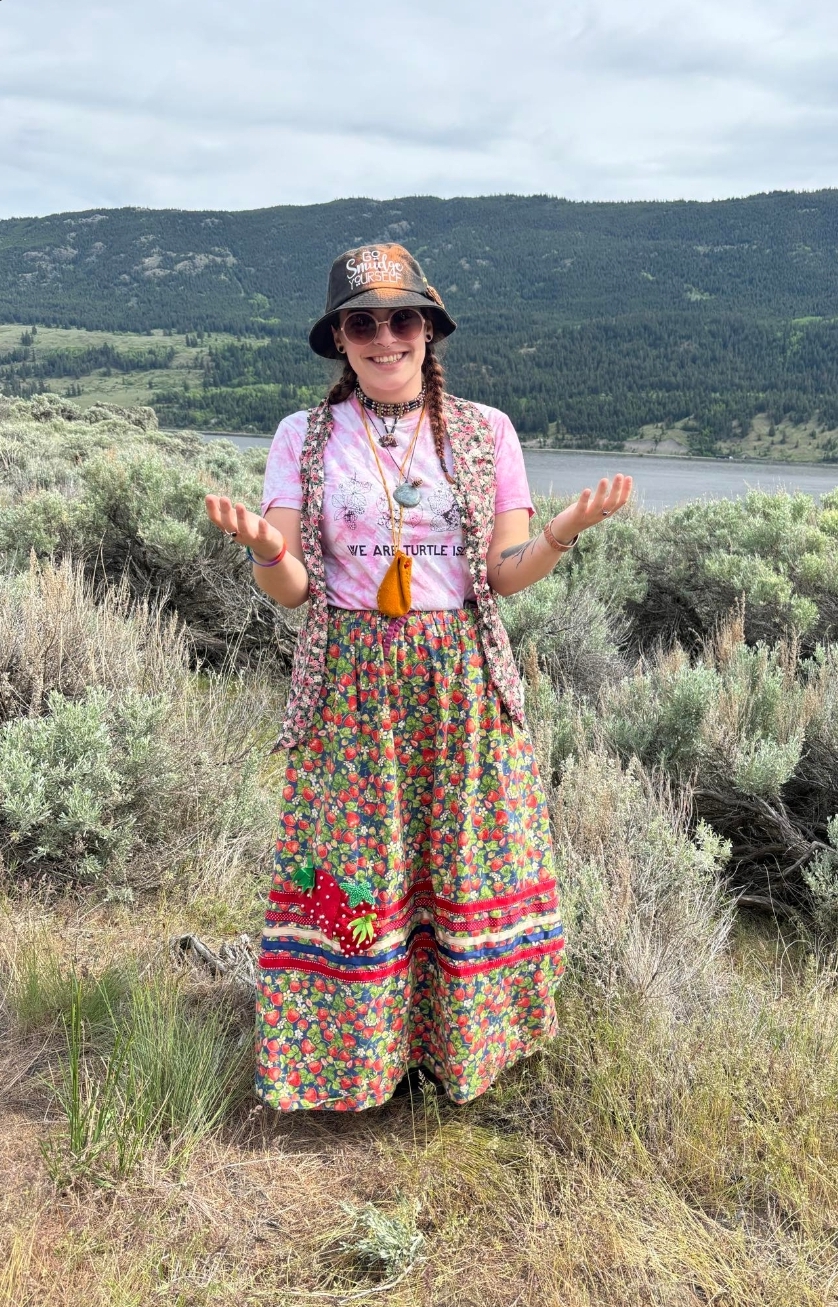This week, hear directly from Helena May, a 23-year old two-spirit youth whose lineage comes from Xa'xtsa First Nation, Ireland and Scotland. They're an artist, skateboarder and youth activist group coordinator who is passionate about the role culture can play in people's lives.
The following has been edited for length and clarity.
To 'bask in the beauty of your own culture is an act of bravery'
For me reclamation involves courage. Because our ancestors were punished for practicing their culture for so long, it's natural for us to be afraid. It's like actually ingrained in us, it's passed down from our relatives who endured and it takes courage to begin to walk the path toward reclamation.
To learn about and bask in the beauty of your own culture is an act of bravery. Reclamation involves empowerment -- beginning to reconnect with your culture can be daunting, you might feel like you're not supposed to be in certain spaces, like you don't belong. But the more time you spend with other Indigenous folks, connecting with your family, your home, your roots, your elders, the more empowered you'll feel.

One thing I've learned during my reclamation journey is that it's okay to find information wherever you can find it. If your only resource right now is the internet, and you can find little bits of the language on places like FirstVoices, you can learn that way. If there's a song from your community shared on YouTube, you can learn that way.
The reason I am so proud of my Indigenous heritage is because of my grandma. She instilled pride in me from a really young age. Her mom, my great grandma, went to residential school and didn't have that same pride because it was taken from her. I'm really grateful for my grandma.
'Art plays a big role in how I weave culture into my life'
I draw form line, I've been doing that since I was seven-years-old. I first learned from my Indigenous liaison at school, she was Sto:lo and I've been practicing on and off for my whole life – I also paint whatever I feel.
I love to dance and when I'm dancing, I feel really connected to my spirit. Originally I found it interesting being in powwow spaces because powwow doesn't come from here, it doesn't come from where I come from but I still felt like I had to pick a style or dance intertribal.
Eventually I looked into it and found out about the kinds of dances that come from where I come from, where my family comes from, and it sort of imitates animal movements, dancing the way your spirit tells you to dance and telling your story which I thought was super cool.
Culture isn't fleeting, it's every day
I work with VYPER, a completely youth governed Indigenous mental health and cultural revitalization initiative based in the Fraser Valley. We foster an environment aimed at inspiring youth to learn more about themselves, their roots and their communities.
Over the last couple of years, we've been focusing on gathering, we've done cultural nights and powwows but we're shifting focus into systems change and access for Indigenous youth around health – mental, physical and spiritual.
VYPER has helped me build a community that I can reach out to. We have this big network of people across British Columbia, across different communities and I'm really grateful for VYPER just existing.
Outside of work I take care of my spirit by smudging and by praying. Through my own spiritual journey I realized you can pray in your own way – to the universe, to your ancestors, to the creator – and that helps me find answers to my problems.
I smudge when I can, I go to ceremony – including sweat lodges, spirit baths, cedar brushing and medicine harvesting – I visit with an Elder and he can see things that I'm like, wow, nobody else could. I drum and sing the songs from my nation. I know like five or six songs which has been a really beautiful thing, being able to get to know and learn those songs.
I also spend time learning my language. I can count to 10, say hello, thank you and some of the basics, which is really nice. My language, St̓át̓imcets, was hard at first, but once I started grasping the ways the letters and the sounds actually work, it got a lot easier.
I'm lucky, every day I work with other Indigenous youth who have a common goal of revitalizing our cultures.

